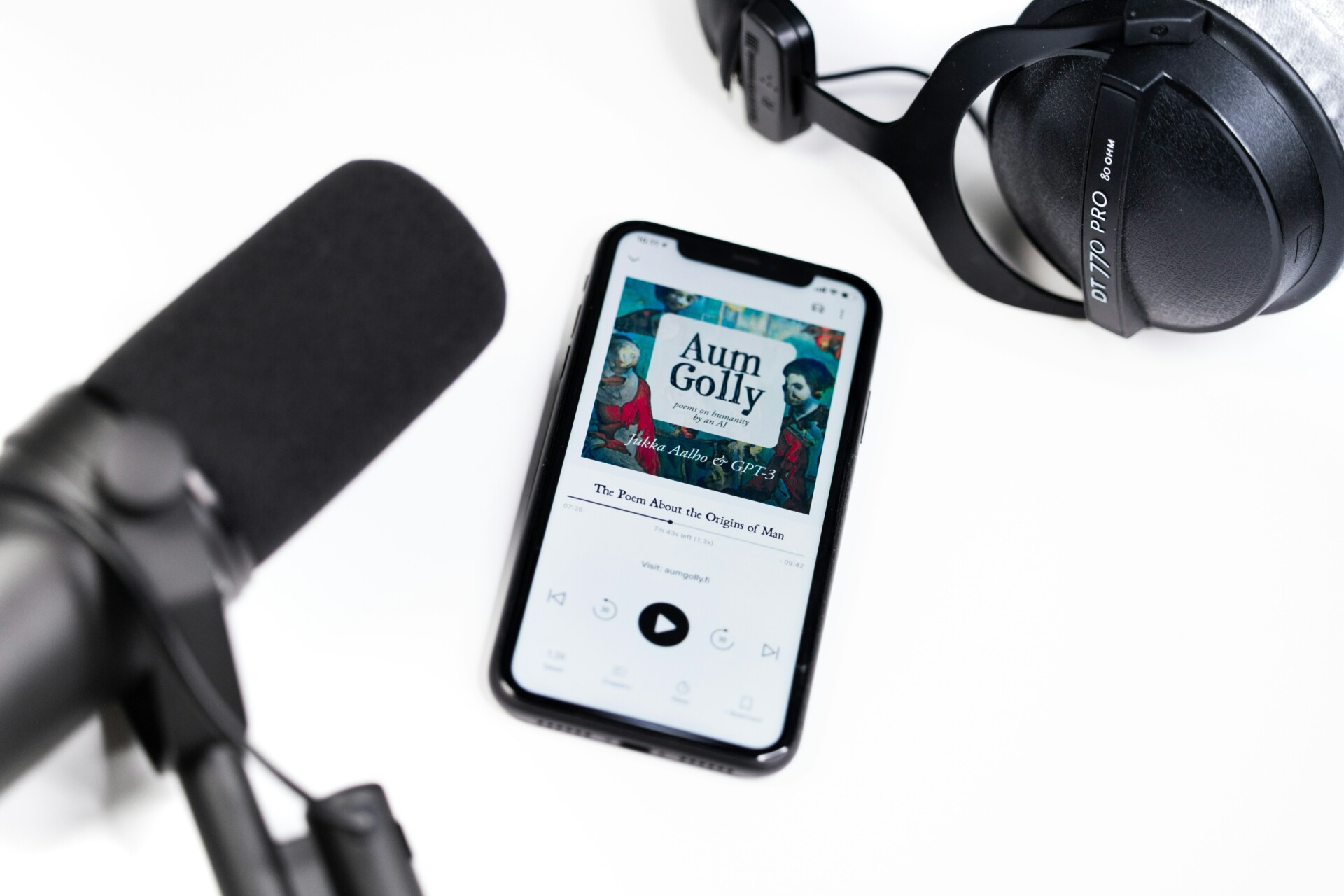In May 2025, Audible made a bold promise: soon, it will offer over 100 AI voices and turn “every book into every language.” That means, in the not-so-distant future, Alexa or any smart speaker could read nearly every story ever written.
Right now, only about 5% of books have audio versions. That leaves millions of titles unheard. Audible’s plan could change that fast. The company wants to make it cheaper and faster to turn text into audio by using artificial intelligence. The goal sounds exciting—more stories, in more voices, for more people.
But there’s a big tradeoff.
With AI in charge of reading, what happens to the human touch that makes storytelling feel alive? Voice actors worry about losing work. Authors worry about losing control. And many listeners wonder if machines can ever really carry emotion the way a human can.
Audible’s big leap into AI opens the door to a massive audio library. But it also sets the stage for one of the biggest fights yet over art, rights, and the future of voice.
What Audible Actually Announced (In Plain English)


Audible’s big move into AI isn’t just about more voices. It’s about reshaping how audiobooks are made, translated, and distributed. The company has laid out a phased rollout that gives publishers tools and choices — while also locking them deeper into Amazon’s world.
“Audible believes that AI represents a momentous opportunity to expand the availability of audiobooks with the vision of offering customers every book in every language, alongside our continued investments in premium original content,” said Bob Carrigan, CEO, Audible. “We’ll be able to bring more stories to life — helping creators reach new audiences while ensuring listeners worldwide can access extraordinary books that might otherwise never reach their ears.”
A Flood of AI Voices
Audible plans to offer over 100 synthetic voices. These will be available in English, Spanish, French, and Italian. Each voice is designed to sound clear, expressive, and regionally distinct. This means publishers can match the right voice to the right story.
The rollout starts in “the coming months.” AI narration will launch first. Later in 2025, AI-powered translation will enter beta.
The translation tool has two modes:
- Text-to-text: Translate the book into another language, then add narration (AI or human).
- Speech-to-speech: This high-tech option keeps the original narrator’s voice but transforms it into a different language.
Audible knows AI isn’t perfect. So it’s adding an optional human check. Publishers can have professional linguists review the AI’s work to catch mistakes and cultural missteps.
Two Ways to Make an Audiobook
Audible gives publishers two production paths:
- Managed Service: Audible handles everything. From text to finished audiobook.
- Self-Service Toolkit: Publishers do it themselves using Audible’s tools.
Both options include access to the 100+ AI voices. Both allow publishers to choose how and where they distribute the finished audiobook.
This gives publishers flexibility. But it also pulls them deeper into Audible’s system. Once they start using these tools, switching to a different provider could become harder and more expensive.
Upgrading From “Virtual Voice”
This new plan builds on Audible’s earlier beta called Virtual Voice. That service, launched through Amazon’s Kindle Direct Publishing (KDP), helped indie authors turn eBooks into audio. It was simple — choose a voice, tweak a few things in the Virtual Voice Studio, and publish.
The new system is more advanced and aimed at bigger publishers. But the core idea is the same: fast, cheap audio.
Behind the scenes, Audible is using advanced Amazon AI. While it doesn’t name Amazon Polly directly, the features are similar. Polly uses deep learning to make voices that sound natural, emotional, and suitable for long-form content like books. It also lets users adjust pacing, pitch, and emphasis with precise controls.
Publishers will be able to update their audiobooks as voices improve. That’s good for quality but also means today’s recordings might sound old in a year. This could lead to a cycle of constant upgrades to stay current.
Training the Machine — With Human Help
Every time a publisher tweaks an AI voice — fixing a pause or correcting a word — that feedback goes into the system. These edits help train the AI to get better. That’s powerful, but also controversial.
It means human effort is being used to improve a tool that might one day replace human narrators. And in many cases, those who are helping train the AI aren’t being paid for that invisible labor.
Strategic Lock-In
By offering both hands-on services and self-serve tools, Audible is building more than just a product. It’s creating a system that publishers will rely on. The tools are powerful, easy to use, and deeply integrated with Amazon’s larger platform.
That makes Audible more than just a place to sell audiobooks. It becomes the production studio, the translation engine, and the distribution pipeline. For many publishers, that’s convenient. But it also makes Audible harder to leave.
Why Push AI Voices Now? (The Upside)
Audible isn’t rolling out AI narration just because it can. There’s a big opportunity behind the move — and it starts with the simple fact that most books never become audiobooks.
Millions of Books, Still Silent
Right now, only about 2% to 5% of books are available in audio form. That leaves a massive library of stories, guides, and knowledge out of reach for listeners. Traditional narration is expensive and time-consuming. It’s just not worth it for many titles, especially older or niche books.
AI changes that. With AI voices, Audible can unlock huge back catalogs that were never turned into audiobooks. These include out-of-print works, indie titles, and low-demand genres. Suddenly, every book has a shot at being heard.
Speed and Savings
Human narration takes weeks — sometimes months — and costs thousands of dollars. AI narration can cut production time down to hours. And it can reduce costs by up to 90%.
For example, one author used Amazon’s AI tool to convert his book into an audiobook in under an hour. That’s a game-changer for indie writers and small publishers who couldn’t afford to produce audio before.
This means more content can get to market faster. Publishers can act on trends quickly, translate books into multiple languages, or test new releases with less risk.
Consistency at Scale
AI brings another benefit: consistency. The voice won’t get tired. It won’t miss a beat halfway through the book. The pacing and tone stay the same from start to finish. That’s appealing for reference materials, technical manuals, or textbooks — cases where clear delivery matters more than performance.
While AI lacks human emotion, it still works well for books that don’t need dramatic flair. For instance, business books, research reports, or self-help guides can still be useful in a steady, even voice.
A Bigger Pie, Not a Smaller Slice
Some worry that AI will steal jobs from human narrators. But Audible says the real goal is to grow the market. AI is being used mostly on books that wouldn’t get made otherwise. That means more audio, not less work for humans — at least for now.
This could create a two-track market:
- Human narration for bestsellers, fiction, and artistic works.
- AI narration for the “long tail” — older books, niche subjects, and non-fiction.
In this model, both human and AI narrators serve different roles. Listeners get more choice, and creators gain new ways to reach audiences.
Opening Global Doors
AI translation adds another layer. A single English book could be transformed into Spanish, French, or German — even using the same narrator’s voice. This global reach could bring entire catalogs to new countries, with minimal added cost.
That’s a big deal for publishers who want to grow outside their home market, or for authors writing in smaller languages looking to find international listeners.
The Loud Warnings (The Downside)


AI narration offers speed and savings, but not everyone sees it as progress. From voice actors to authors and listeners, concerns are rising about quality, fairness, and what’s at stake when machines start to speak for humans.
Human Voice vs. Bot Voice
Professional narrators and their unions, especially SAG-AFTRA, are worried. They fear AI could replace human jobs and reduce a skilled art form to just another algorithm. Their concern is not just economic — it’s personal. Voice actors bring emotion, rhythm, and character to each line. AI, at least today, struggles to match that level of depth.
Narrator Kristin Atherton summed it up: AI can’t deliver a crack in the voice during a sad moment or pull off perfect comedic timing. It can’t switch between characters with nuance or hold a listener’s attention the way a trained performer can.
SAG-AFTRA is already taking action. It wants rules that require consent before a voice is copied, and fair pay when digital replicas are used. The union is pushing for stronger contracts and supporting state laws like Tennessee’s ELVIS Act, which protects people’s voices from being used by AI without permission.
One idea gaining attention is “Authorized Voice Replicas.” This would let narrators license AI versions of their own voices. It could help them earn more and reach more projects — if done fairly. But it also raises questions about quality, control, and whether those replicas might harm the narrator’s brand.
Copyright Minefield
Authors and narrators also worry about how these AI models are trained. Many believe their voices and books were used without consent. That means creators may be helping build tools that could replace them — without getting paid or even asked.
Groups like the Authors Guild are fighting back. They’re calling for full transparency and control over how books and performances are used to train AI. They’re also pushing for new contract language that protects writers from unauthorized AI use.
Quality Flood
There’s also concern that AI could lead to a flood of mediocre audiobooks. If anyone can produce one quickly and cheaply, the market may become overloaded. This could hurt discovery for better books, lower listener trust, and devalue the audiobook format overall.
Some listeners have called current AI-narrated content “crap” — flat, robotic, and hard to enjoy. The lack of emotion and clarity in character voices makes fiction harder to follow. Mispronunciations and strange pauses can also break immersion.
Even with editing tools like Audible’s Virtual Voice Studio, these problems still happen. And while AI is improving, it still can’t improvise or adjust to story tone the way a human can. That means it often delivers a technically clean but emotionally dull performance.
Listener Pushback
Many listeners want to know when AI is being used. Some platforms, including Audible, now label AI-narrated books. But if those labels aren’t clear, there’s a risk of “human-washing” — passing off AI work as real narration.
Some users are even installing browser extensions to avoid AI results. Others say they’ll only buy human-narrated books, even if that means paying more. This growing group of AI skeptics is shaping a new demand: keep the soul in storytelling.
Clear labels like “AI Voice” or “Authorized Voice Replica” are becoming essential. Industry groups are already setting naming standards, and more rules may follow. As the line blurs between AI and human, being transparent will be key to keeping listener trust.
Everyone Else Is Doing It: A Fast Comparative
Audible isn’t alone in betting big on AI voices. Its major rivals—Spotify, Apple Books, Google Play Books, Storytel, and Kobo—are all testing or rolling out AI narration, each with its own approach.
Spotify is moving fast. In 2025, it partnered with ElevenLabs, a leading AI voice company, to help self-published authors turn books into audiobooks. Spotify accepts AI titles through Findaway Voices and clearly labels them. Its use of high-quality, emotional AI voices in multiple languages helps it stand out.
Apple Books takes a slower, more curated path. It works with select partners to create AI-narrated titles in specific genres like romance, mystery, and non-fiction. Apple also picks the voice based on the book and includes a required label: “narrated by a digital voice based on a human narrator.” It’s polished but limited in scale.
Table 1: Comparative Analysis of AI Audiobook Narration Platforms
| Platform | Core AI Narration Features | Technology Approach | Target User | Labeling Policy | Key Differentiators |
| Audible | 100+ AI voices, self-service & managed production, AI translation (beta), KDP Virtual Voice | In-house (Amazon AI capabilities, likely leveraging Amazon Polly) | Publishers, Indie authors (KDP) | “Narrated by Virtual Voice” for KDP; new labeling TBD but expected to be clear | Integrated Amazon ecosystem, vast voice library, planned speech-to-speech translation, dominant market presence |
| Spotify (via ElevenLabs/Findaway Voices) | AI conversion for self-published authors, distribution via Findaway Voices | Partnership with ElevenLabs (specialized AI voice tech) | Self-published authors, publishers using Findaway Voices | “This audiobook is narrated by a digital voice” prepended to description | Leverages high-quality AI voices from ElevenLabs, focus on empowering creators, integration with Spotify’s audio ecosystem |
| Apple Books | “Narrated by Apple Books” program, curated partner production (Draft2Digital, Ingram, PublishDrive) | Apple’s proprietary text-to-speech technology, curated voice selection | Indie authors & publishers via partners, specific genres (fiction, romance, etc.) | “Narrated by Apple Books”; description must state “digital voice based on a human narrator” | Curated approach, specific genre focus, distinct “based on a human narrator” phrasing, quality review process |
| Google Play Books | “Autonomy Audiobooks” eBook-to-audiobook conversion, editing tools for pronunciation/inflection | Google’s AI technology | Authors/publishers on Google Play Books platform | Assumed clear labeling, similar to other platforms; details on specific phrasing not in snippets. | Free conversion (during beta), direct integration for existing Google Play Books users, leveraging Google’s AI strength 41 |
| Storytel | “Voice switcher” (user choice of AI/human voices), experimental AI novelist project 3 | In-house experimentation, use of cloned popular narrator voices (licensed) 36 | Storytel subscribers (for voice switcher) | AI voices are identifiable as such, especially in voice switcher context | Focus on listener choice and A/B testing preferences, experimentation with novel AI applications in audio |
| Kobo | Accepts AI narration with specific metadata requirements | Platform agnostic regarding AI creation tool used by publisher | Authors/publishers distributing through Kobo | Narrator listed as “Synthesised voice – male/female/unspecified” | Clear metadata standard for AI narration, open acceptance of AI-generated content meeting these standards |
Google Play Books offers a simple conversion tool. Authors on its platform can turn eBooks into audiobooks using built-in AI. It’s fast and free (for now), with editing tools for pronunciation and pacing, but limited in voice variety and control.
Storytel is experimenting with features like a “voice switcher,” letting users pick between human or AI narrators for the same book. Early results show human voices are still preferred, but AI-cloned voices from real narrators have traction.
Kobo accepts AI narration too, requiring metadata that clearly identifies synthesized voices. It groups AI titles under a specific “Artificial Intelligence” theme for easier tracking.
Each company is testing a different strategy. For now, there’s no single standard—just many playbooks in motion.
The Ethics & Labeling Litmus Test


As AI voices become more common in audiobooks, one major issue stands out: how these tools are trained. Many current AI models were built using copyrighted books and voice recordings—without asking permission from the people who created them. Authors and narrators call this “stolen art,” and they’re pushing back hard.
Groups like the Authors Guild want AI companies to license content fairly. They argue creators deserve to be asked, credited, and paid when their work trains a machine. Lawsuits are already in motion, and the outcome could shape the future of how AI is used in publishing.
To help set ethical standards, some groups are creating certifications. One, called “Fairly Trained,” promises to mark AI systems that use properly licensed data. These labels could give publishers and listeners a clearer sense of what’s behind the voice they hear.
There’s another key part of the trust equation: labeling. Listeners want to know if a book was read by a person or a machine. Most major platforms now label AI-narrated titles. Audible, Spotify, Apple Books, and Kobo all use different terms, like “digital voice” or “synthesized voice,” but the rules aren’t consistent.
As AI voices get better, the line between real and fake will blur. That makes transparency more important than ever. Clear labels, stronger disclosures, and ethical sourcing could all help rebuild trust. Without them, even the best AI voices risk sounding hollow.
What Happens Next? (And How to Prepare)
The rise of AI in audiobooks marks a turning point for the industry. As voice tech improves, “good enough” AI will likely expand access to books once left unheard—especially backlists, niche topics, and non-fiction. At the same time, hybrid models are emerging, with AI handling bulk work and humans adding artistry where it matters most.
Still, the future of audio storytelling will depend on more than tech. Ethical training data, clear labeling, and fair compensation must be built into the system. Publishers, authors, and narrators all have a role to play—negotiating new rights, shaping standards, and ensuring listeners aren’t left guessing.
The audiobook world is growing fast, and AI is helping it scale. But to keep that growth meaningful, the industry must blend AI’s speed with human creativity and conscience. The real challenge isn’t just about making more books audible. It’s about making sure the future still sounds like a story worth hearing.
